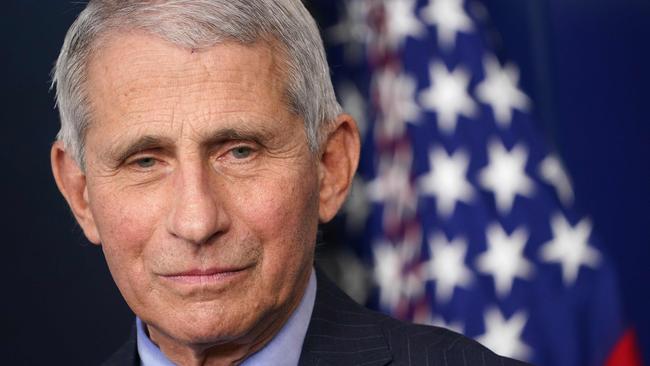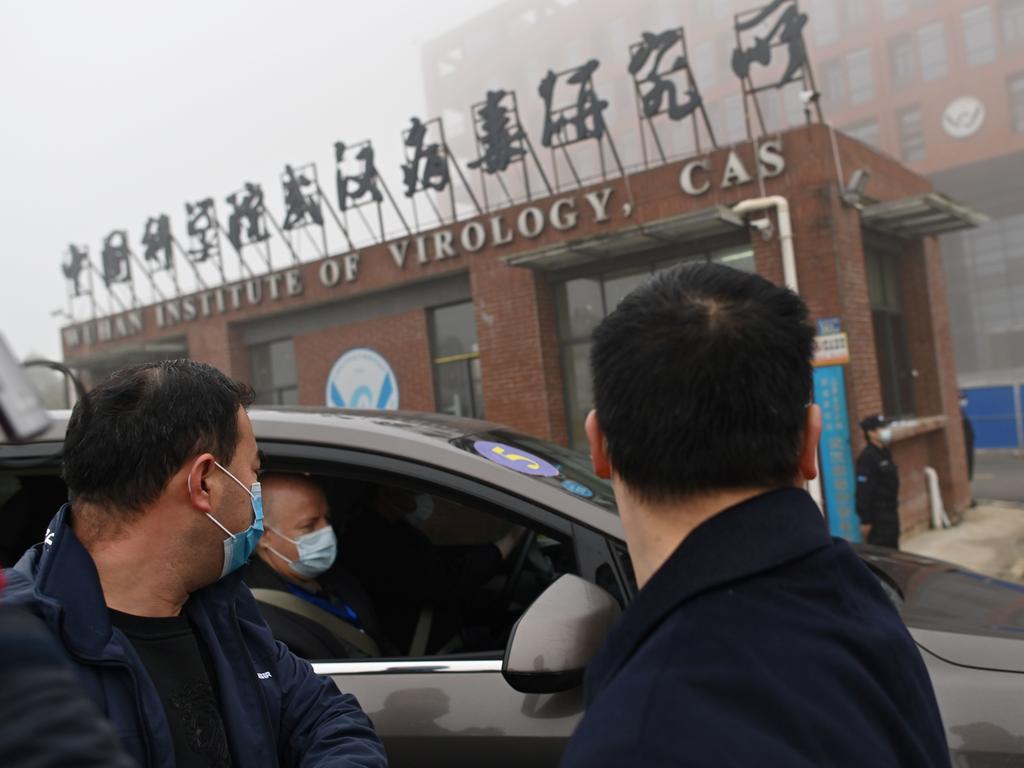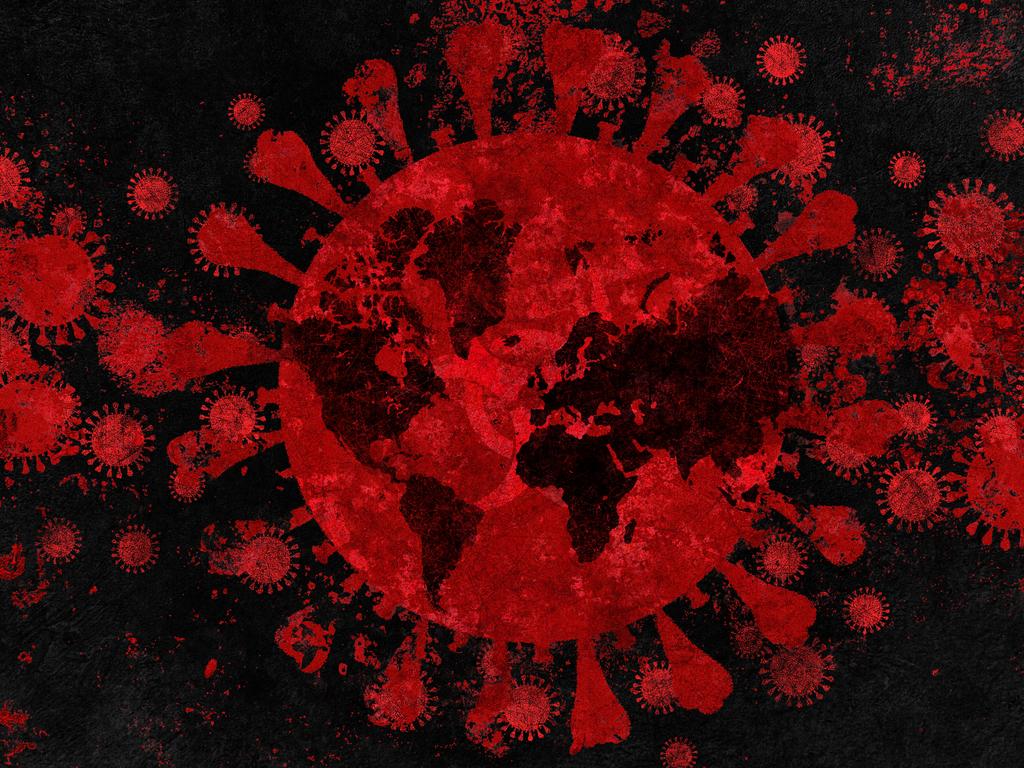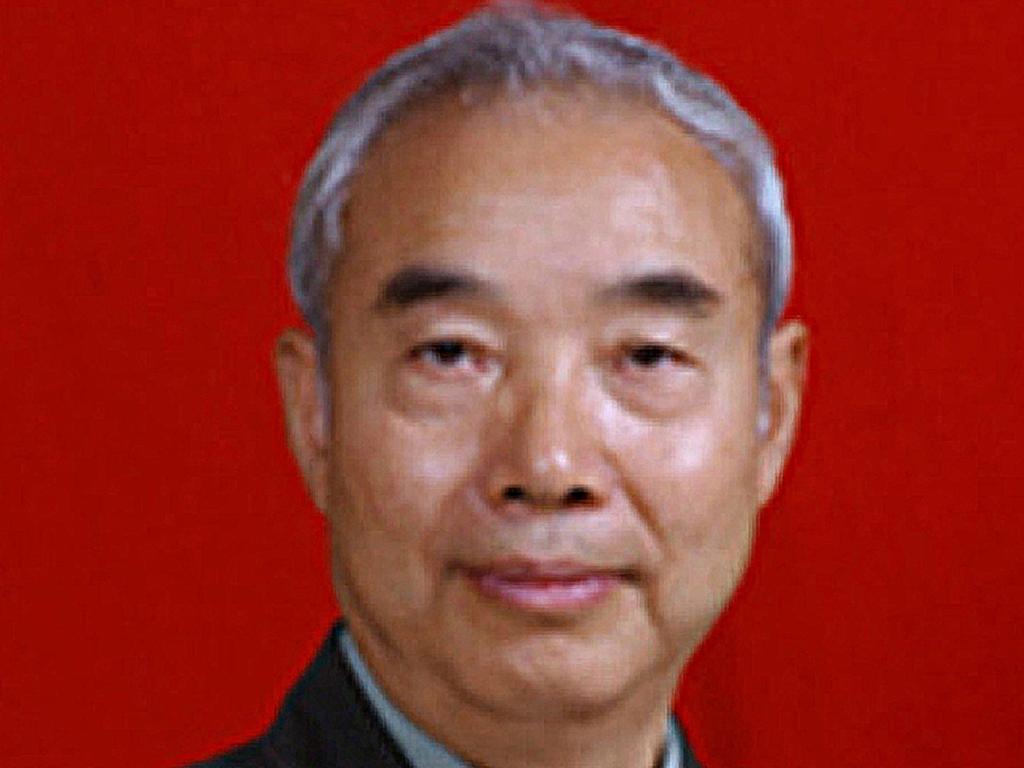Anthony Fauci backed virus experiments ‘despite pandemic risk’
America’s top Covid-19 medical adviser argued the benefits of experimenting on contagious viruses was worth the risk of a lab accident sparking a pandemic.

America’s top medical adviser for the coronavirus, Anthony Fauci, argued that the benefits of experimenting on contagious viruses – manipulating and heightening their infectious potency – was worth the risk of a laboratory accident sparking a pandemic.
In previously unreported remarks, Dr Fauci supported the contentious gain-of-function experiments that some now fear might have led to an escape from a Wuhan laboratory causing the Covid-19 pandemic, calling them “important work”.
An investigation by The Weekend Australian has also confirmed Dr Fauci, the director of the National Institute of Allergy and Infectious Diseases, did not alert senior White House officials before lifting the ban on gain-of-function research in 2017.
Writing in the American Society for Microbiology in October 2012, Dr Fauci acknowledged the controversial scientific research could spark a pandemic.
“In an unlikely but conceivable turn of events, what if that scientist becomes infected with the virus, which leads to an outbreak and ultimately triggers a pandemic?” he wrote. “Many ask reasonable questions: given the possibility of such a scenario – however remote – should the initial experiments have been performed and/or published in the first place, and what were the processes involved in this decision?
“Scientists working in this field might say – as indeed I have said – that the benefits of such experiments and the resulting knowledge outweigh the risks.
“It is more likely that a pandemic would occur in nature, and the need to stay ahead of such a threat is a primary reason for performing an experiment that might appear to be risky.”
In the paper, Dr Fauci also writes: “Within the research community, many have expressed concern that important research progress could come to a halt just because of the fear that someone, somewhere, might attempt to replicate these experiments sloppily. This is a valid concern.”
Dr Fauci has led the US response to the outbreak but is now facing serious questions about his role in funding the radical experiments being conducted inside the Wuhan Institute of Virology.
A forthcoming book, What Really Happened in Wuhan, documents increasing concerns that a leak from the Wuhan lab – and not natural spread via an animal in a wet market – could have sparked the Covid-19 crisis that has up-ended every nation in the world and killed 3.4 million people.
Dr Fauci on May 11 reversed his position on whether Covid-19 had leaked from the WIV, and said he was now “not convinced” the virus had developed naturally and authorities needed to find out “exactly what happened”.
Gain-of-function experiments – often with bat-derived coronaviruses – centre on manipulating, splicing and recombining viruses potentially into strands of highly infectious and little understood diseases.
This type of research carries such a risk of causing a pandemic that the Obama administration paused funding for gain-of-function experiments in 22 fields in 2014, including those involving SARS, influenza and MERS.
US President Joe Biden this week ordered a fresh US intelligence inquiry into whether the virus had originated at the laboratory, while WHO director-general Tedros Adhanom Ghebreyesus said his team’s inquiry into the origins did not sufficiently examine an accidental laboratory leak.
The NIH has come under significant criticism in recent weeks over funding WIV research relating to change-of-function, which Dr Fauci denies. Earlier this month, he told a US Senate hearing that the NIH “has not ever and does not now fund gain-of-function research in the WIV”.
Yet papers published as late as last year in American peer-reviewed academic journals that include WIV researchers – including its prominent virologist Shi Zhengli – disclose that work on coronaviruses had been funded by at least three NIH grants.
At the time of Dr Fauci’s paper, there was a voluntary ban on gain-of-function research related to highly infectious influenza viruses. He asked what would happen if the experiments were conducted by a lab not subject to adequate safety regulations.
“Putting aside the specter of bioterrorism for the moment, consider this hypothetical scenario: an important gain-of-function experiment involving a virus with serious pandemic potential is performed in a well-regulated, world-class laboratory by experienced investigators, but the information from the experiment is then used by another scientist who does not have the same training and facilities and is not subject to the same regulations,” he wrote.
Dr Fauci wrote that virologists needed to respect “that there are genuine and legitimate concerns about this type of research, both domestically and globally.”
“We cannot expect those who have these concerns to simply take us, the scientific community, at our word that the benefits of this work outweigh the risks, nor can we ignore their calls for greater transparency, their concerns about conflicts of interest, and their efforts to engage in a dialogue about whether these experiments should have been performed in the first place,” Dr Fauci wrote.
“Those of us in the scientific community who believe in the merits of this work have the responsibility to address these concerns thoughtfully and respectfully.”
Dr Fauci added: “Granted, the time it takes to engage in such a dialog could potentially delay or even immobilize the conduct of certain important experiments and the publication of valuable information that could move the field forward for the good of public health,”
“If we want to continue this important work, we collectively need to do a better job of articulating the scientific rationale for such experiments well before they are performed and provide discussion about the potential risk to public health, however remote,” he wrote.
In December 2017, the National Institute of Health, of which the NIAID is a part, announced it would resume funding the gain-of-function research.
Multiple Trump administration officials told The Weekend Australian Dr Fauci had not raised the issue of restarting the research funding with senior figures in the White House.
“It kind of just got rammed through,” one official said.
“I think there’s truth in the narrative that the (National Security Council) staff, the president, the White House chief-of-staff, those people were in the dark that he was switching back on the research.”
The Weekend Australian has also confirmed that neither Mike Pompeo, the then director of the Central Intelligence Agency, nor National Security Council member Matthew Pottinger, was briefed.
The experiments are also opposed by prominent scientists, including the Cambridge Working Group of 200 researchers which issued a public warning in 2014.
“Accident risks with newly created “potential pandemic pathogens” raise grave new concerns,” the group’s letter read. “Laboratory creation of highly transmissible, novel strains of dangerous viruses, especially but not limited to influenza, poses substantially increased risks.
“An accidental infection in such a setting could trigger outbreaks that would be difficult or impossible to control. Historically, new strains of influenza, once they establish transmission in the human population, have infected a quarter or more of the world’s population within two years.”
And Steven Salzberg, of the Johns Hopkins School of Medicine, in 2015 said the benefits of gain-of-function research were “minimal at best” and they could “far more safely be obtained through other avenues of research”.
“I am very concerned that the continuing gain-of-function research on influenza viruses, and more recently on other viruses, presents extremely serious risks to the public health,” he wrote.
Dr Fauci did not respond to queries.
What Really Happened In Wuhan by Sharri Markson will be published by HarperCollins in September and is available for pre-order from Booktopia now.







To join the conversation, please log in. Don't have an account? Register
Join the conversation, you are commenting as Logout